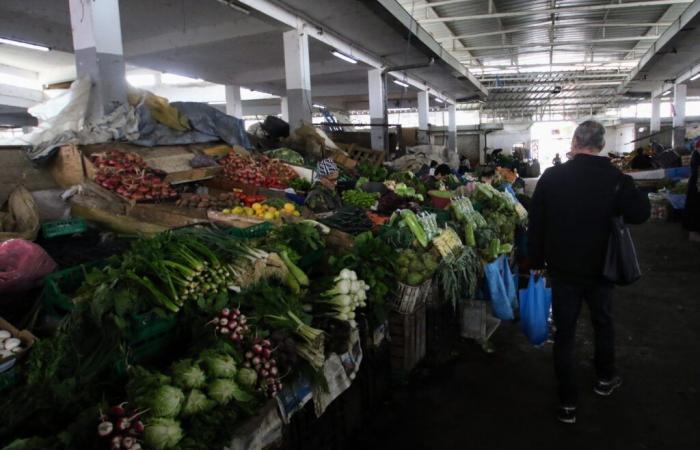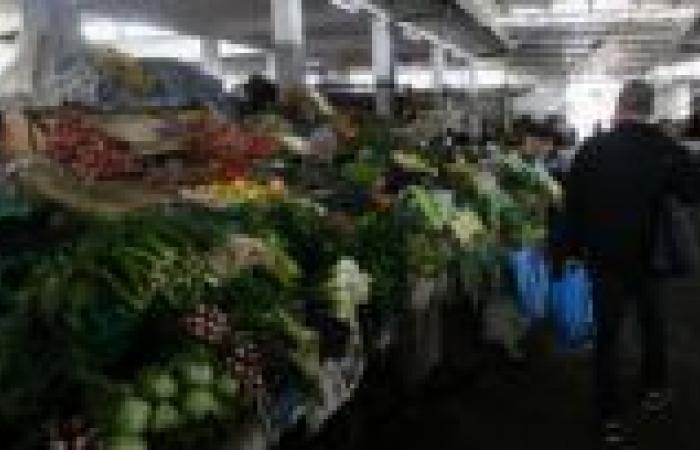As the holy month of Ramadan approaches, the concern of Moroccan households is increasing. The surge in food prices continues unabated, straining the budgets of Moroccan families, mainly those with modest and limited incomes. The increases concern in particular chicken (25-30 Dhs/kg), vegetables such as tomatoes (10-13 Dhs/kg) and beans (22 Dhs/kg), sardines (between 25 and 30 Dhs/kg).
While the stock markets were already under pressure since the health crisis, the year 2024 saw an upward trend in the prices of all essential products. Today, vegetable prices are around 10 Dhs/kg. The prices of fruit need no comment. The red meat crisis is deepening with prices continuing to rise, exceeding 120 Dhs/kg. Poultry prices, for their part, have reached intolerable levels, at 30 Dhs/kg.
The rise in fish prices continues to send shivers, with 30 Dhs/kg, compared to 10 previously. This fish, essential for many families with modest incomes, is also becoming less and less accessible, especially at a time when red meat and chicken remain expensive.
Inflation or not, drought or rain… the average citizen doesn’t want to know anything. His daily life becomes difficult to bear on a budgetary level in the face of state solutions which are always slow to bear fruit.
It is in this very tense atmosphere of the markets that Ramadan arrives. Certainly, it is a month of piety, meditation and devotion. But it is also a month, and this is the great paradox, of overconsumption. And for many, it is the highly anticipated month for Chhiwates, delicious dishes and other tagines.
During this month, and it’s no secret, our table gains weight. And what is certain is that during this month, the pressure on household budgets increases a notch due to the increase in demand, often at the origin of the rise in prices. But here too, this increase is far from being the only reason. Indeed, during the month of Ramadan, speculation is in full swing. It is therefore important to note that this phenomenon, by force of circumstances, has ended up taking on worrying proportions in recent years, thus defying all the control measures planned by the various state price control authorities.
Indeed, from Ramadan to Ramadan, prices skyrocket, far exceeding the purchasing power of a good portion of Moroccans who, in the absence of rigorous and above all effective controls, have ended up giving in to a market given to itself. even where the intermediaries, notably these “Moul Choukara”, make and break the market without being worried one iota.
This means that for this Ramadan 2025 and at the rate of this upward price trend, certain products risk being out of reach. At the forefront is fish, very popular during this month, as well as red meats and poultry.
-Politically, the Akhannouch Government is singled out, accused of inaction, inefficiency and inability to resolve the problem of rising prices and stabilizing markets… and above all to put in place solutions that really work. The case of cattle imported for Aid Al Adha last year says it all! In Parliament as in various public spaces, the Executive is called upon to set the record straight in the great hope of avoiding the continued deterioration of the purchasing power of Moroccans.
For its part, the Moroccan Federation of Consumer Rights expresses its concerns regarding the surge in prices of basic necessities and its impact on low-income households. It calls for urgent measures to protect purchasing power, in particular strengthened control of markets to counter speculative practices and exemplary sanctions against fraud.
Among the solutions proposed are exemption from taxes on red meat and vegetables, removal of customs duties for the importation of chicks and reduction of production costs through tax breaks on food raw materials.
According to a very recent HCP report, Moroccan households are facing deep economic malaise. The said HCP report reveals marked pessimism among Moroccan families in 2024, particularly regarding daily life and employment. 81% of households report a deterioration in their standard of living, worsened by the rise in food prices (according to 97.5% of them). 82.7% fear a rise in unemployment, and 80% consider the conditions unfavorable for large purchases. A large part of households (41.2%) must resort to savings or borrowing. From year to year, the months of Ramadan are more and more tense…
H.Z
Share this article:
To go further









